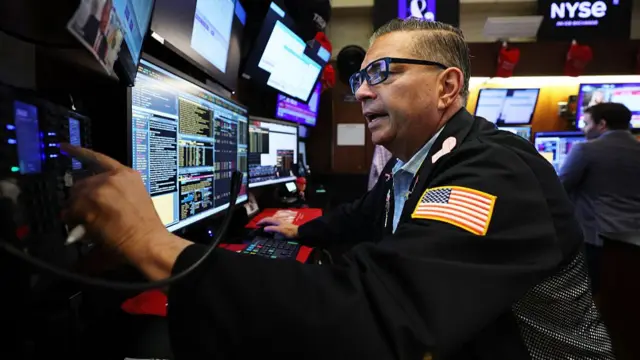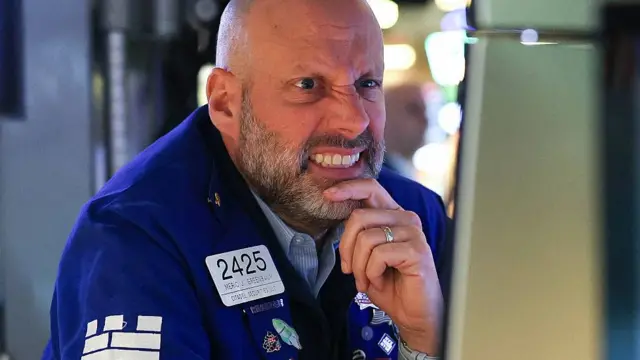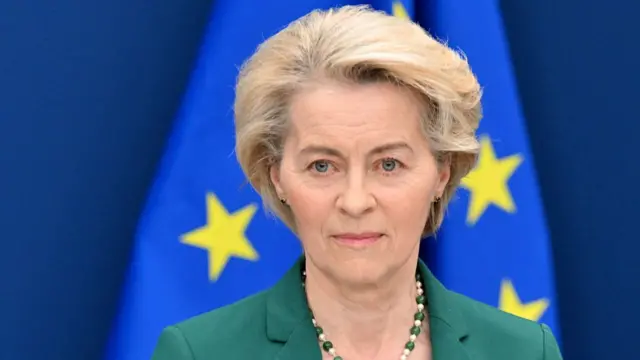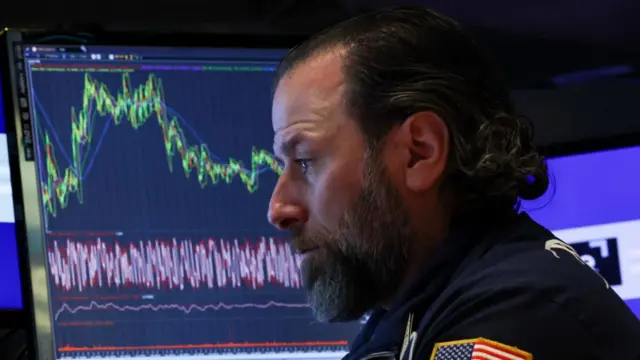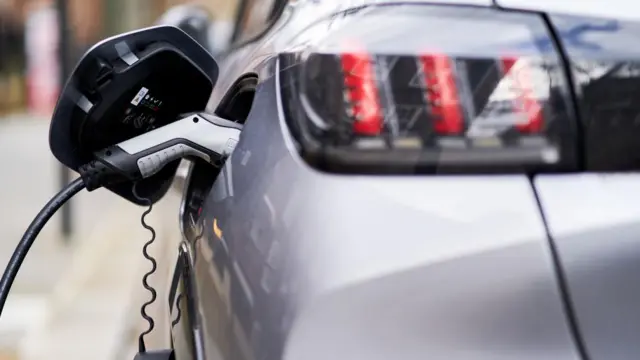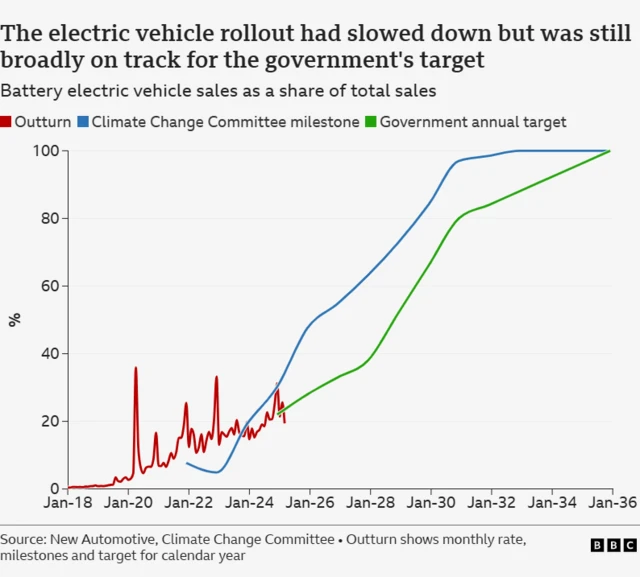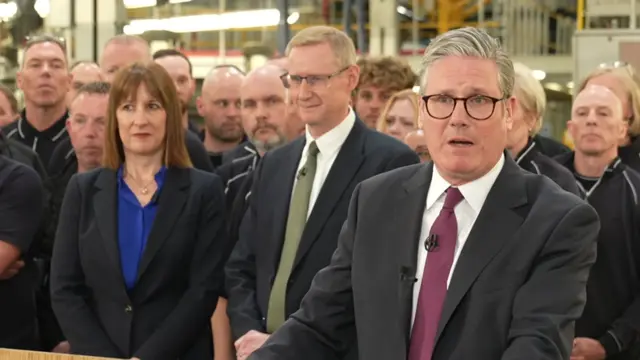
Is the US running a $1 trillion deficit with China?published at 17:56 BST 7 April
By Gerry Georgieva
During the 15 minutes that President Donald Trump spoke to reporters last night, he claimed that the United States was running a $1tn trade deficit with China.
He's just announced that he plans to hit Beijing with an extra 50% tariff unless it drops retaliatory levy
We can’t find any evidence for his claim, which he made several times
The US does run a trade deficit with China, meaning that it imports more in goods from that country than it exports to it, but the figure was just over $295bn for 2024, external.
Globally, in 2024, China exported nearly $1tn more goods, external than it imported so it’s possible that Trump may have been mistakenly referring to this figure.

